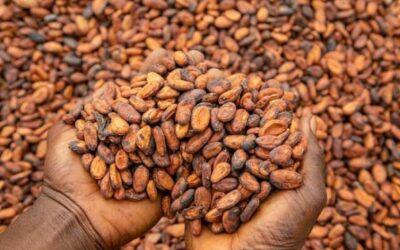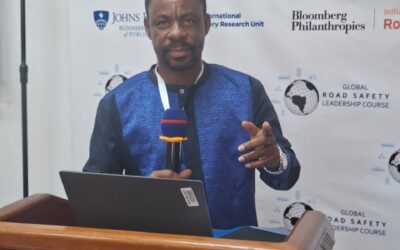EBENAGE HERBAL Production and Consult (EHPC) has launched a strategic training programme in Kumasi to equip its labour force with modern techniques necessary for enhancing the production of quality and evidence-based medicinal products for the general well-being of its customers.
The company, which manufactures leading herbal products including Hepa Plus, Pavi and Plasmox Mixture, considers periodic staff training as a conduit for providing them with relevant skills and cutting-edge scientific methods for quality products preparation.



Some scenes from the training workshop
Speaking at the launch of the four-month training programme last Thursday, Dr. Ebenezer Agyemang, founder of EHPC, expressed optimism to transform his outfit into the status of the Centre for Plant Medicine Research (CPMR) at Mampong.


Felicia Agyemang,CEO
Over 100 participants were expected to benefit from the programme under the theme, “Optimising Efficiency and Quality in Herbal Medicine Production through Innovative Consultation Strategies”. It was attended by high-profile personalities from both academia and industry who commended EHPC for its great strides.

Dr. Ebenezer Agyemang, Founder speaking at the workshop
Ebenage Herbal Production and Consult organised the programme in partnership with the Commission for Technical and Vocational Education and Training (CTVET), Ghana Skills Development Fund (GSDF) and Centre for Plant Medicine Research (CPMR).
It coincided with the 10th anniversary celebration of EHPC which, according to its CEO, Felicia Agyemang, marks a significant milestone as it embarks on a transformation initiative aimed at elevating the standards and efficiency of herbal medicine production in the country.
Head of Department, Herbal Medicine, Kwame Nkrumah University of Science and Technology (KNUST), Prof. Isaac Kingsley Amponsah, who shared thoughts on ‘Building Career in Herbal Medicine, Bridging the Gap Between Industry and Academia’, commended Dr. Ebenezer Agyemang for making good of the training he was given.
According to him, the use of herbal medicines for the treatment of diseases is as old as man’s existence, and expressed delight at the progress made in the development of herbal medicines to the extent that there are conventional medicines that have come from herbal medicines.
This success, he noted, was achieved through the collaboration between research institutions, universities and the traditional medical knowledge holders, stressing that the best way to live healthy is to always use natural products as the body easily adapt to their mechanisms.
Prof. Amponsah observed that even though herbal medicine was in obscurity decades ago, through collaborative efforts, today, it can stand the test of time, especially in the face of the emergence of diseases some of which the world does not have an answer to.
According to him, Ghana is not only one of the best herbal medicine manufacturers in Africa, but also, currently it is leading in the integration of herbal medicine into mainstream conventional medical care.
In his remarks, Prof. Alex Asase, Executive Director, CPMR, noted that herbal medicine is not an inherited thing but part of Ghanaian culture which plays a pivotal role in its primary healthcare as well as for many developed countries.
He pointed out that Ghana, being at the centre of the African Continental Free Trade Area (AfCFA), will benefit a lot from herbal medicine if it positions itself well.
The CPMR boss singled out quality as one of the major challenges facing herbal medicine manufacturers, stressing that, “Quality is important, efficacy is also important because we don’t want to just have herbal medicine as it used to be several centuries ago. We want to package it better. We want to make sure that the standards are very high.”
This, he said, is linked to adequate training to deliver good quality products that are efficacious, and commended the government through the Ministry of Health for promoting herbal medicine through various processes.
He also identified lack of raw materials and other substitutes as a challenge which he attributed to the extinction of the plant material that the herbalists have been using, thereby forcing them to use inferior materials.
“We need to go international, therefore, we have to improve on the quality of our products, and I am happy that at the end of this training we will be able to move at another level towards this agenda. Our team of dedicated facilitators for this training would be providing training in different areas that will help move towards this agenda,” he stated.
In brief comments, Professor Joshua Boateng, University of Greenwich, UK, threw a challenge to herbal medicine manufacturers to find a new microbial product that will break the cycle of antibiotic resistance, indicating that anyone who succeeds will likely win a Nobel Prize.
On his part, Samuel Amate, Project Monitoring and Evaluation Officer, Ghana Skills Development Fund (GSDF), said the training would be practically done in order for the participants to get knowledge and skills to advance the standard of herbal medicine.
While appealing to the participants to be actively involved in the training, Mr. Amate projected that the participants will reduce waste and also enhance productivity at the end of the programme.
Source:James Quansah, Kumasi

















